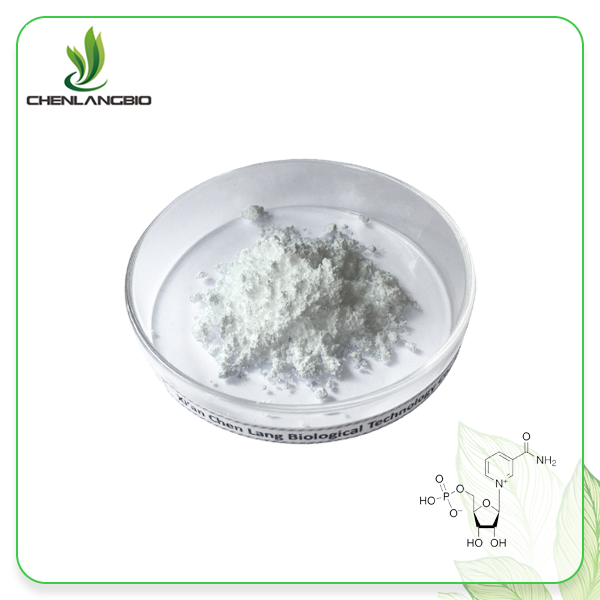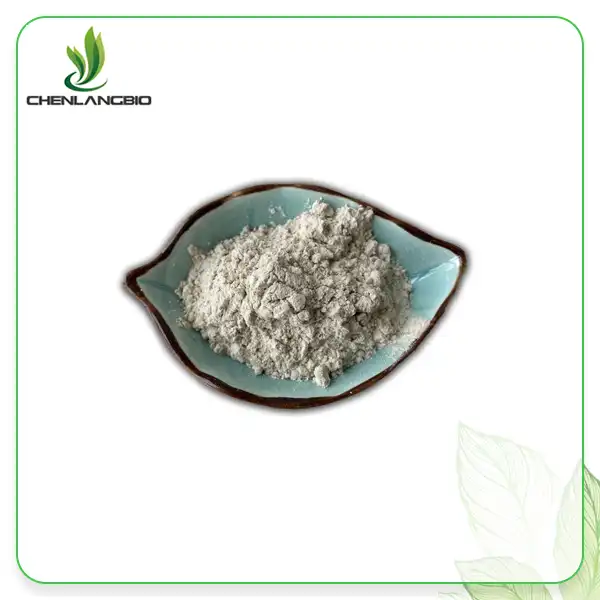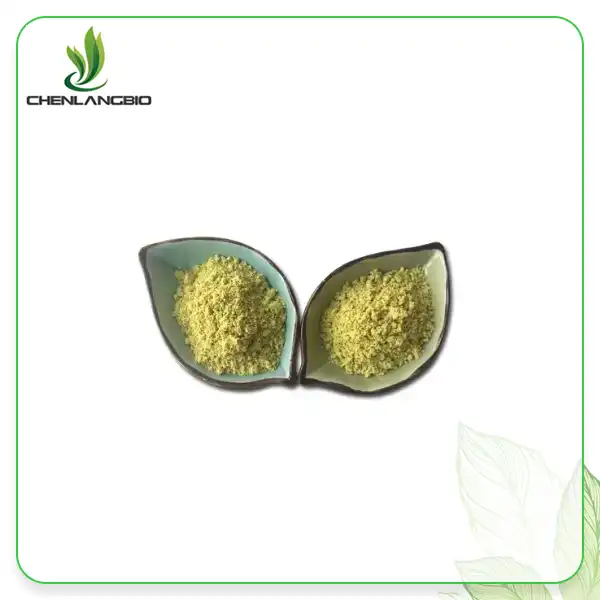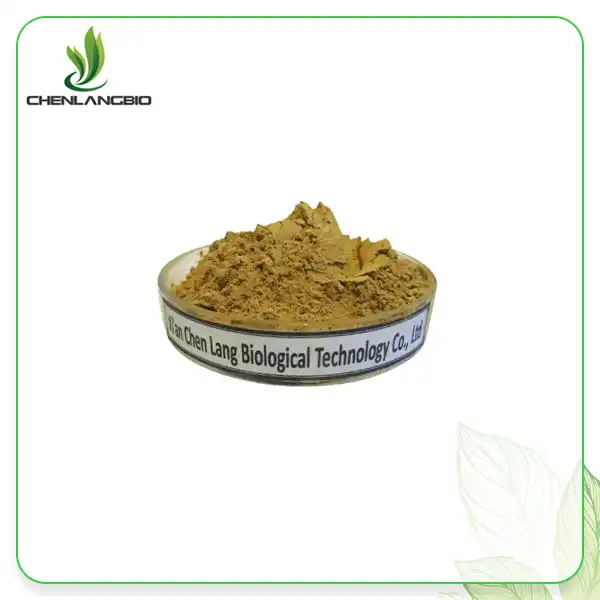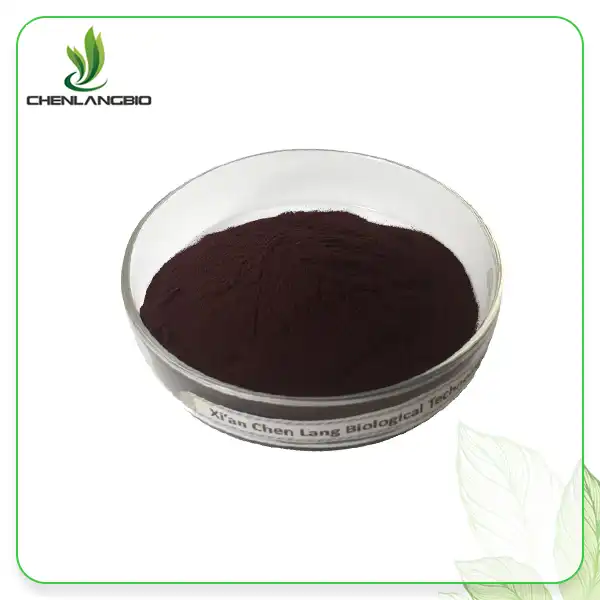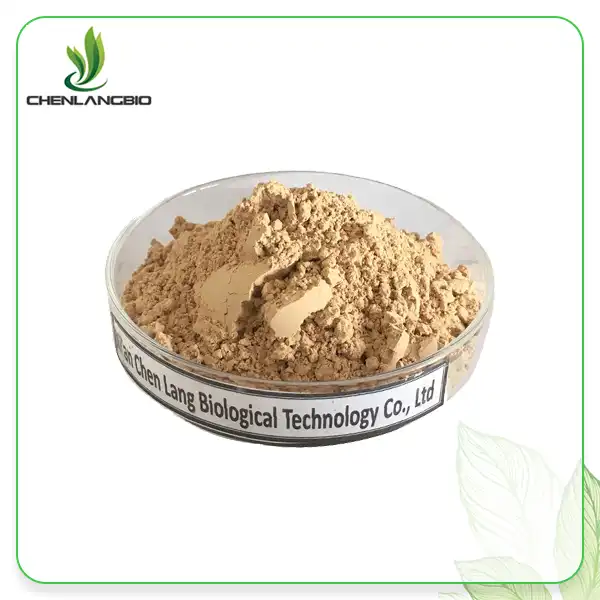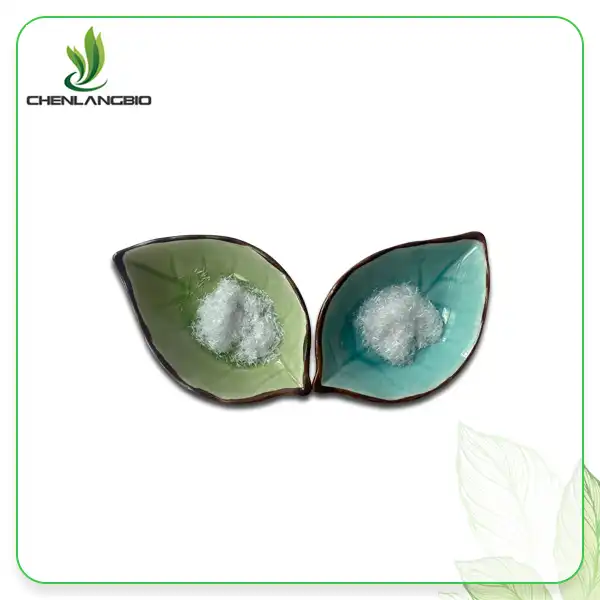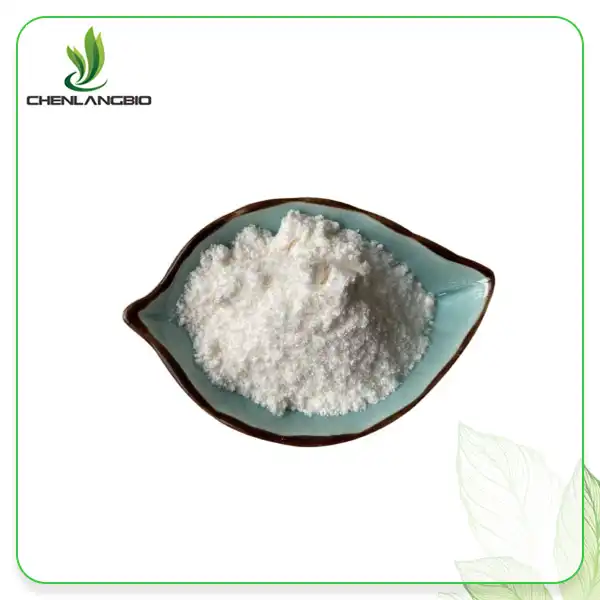Can Ascorbyl Tetraisopalmitate Cause Irritation or Breakouts?
2025-07-07 10:48:03
When it comes to incorporating vitamin C derivatives into your skincare routine, ascorbyl tetraisopalmitate stands out as a gentle yet effective option. Many individuals with sensitive skin often worry about potential irritation or breakouts when trying new active ingredients. Ascorbyl Tetraisopalmitate, also known as VCIP or Tetrahexyldecyl Ascorbate, offers the benefits of vitamin C without the common drawbacks associated with other forms, making it an excellent choice for those concerned about skin reactions.
Unlike traditional L-Ascorbic acid that can sometimes cause irritation, Ascorbyl Tetraisopalmitate is formulated to be gentle on the skin while delivering potent antioxidant benefits. This oil-soluble vitamin C derivative is known for its stability, efficacy, and skin-friendly nature that minimizes the risk of irritation or breakouts, making it suitable for various skin types, including those with sensitivity concerns.
The Gentle Nature of Ascorbyl Tetraisopalmitate
How VCIP Differs from Traditional Vitamin C
Ascorbyl Tetraisopalmitate represents a significant advancement in vitamin C technology, offering distinct advantages over traditional L-Ascorbic acid formulations. While L-Ascorbic acid is water-soluble and notoriously unstable, Ascorbyl Tetraisopalmitate is oil-soluble, which fundamentally changes how it interacts with the skin. This oil solubility allows VCIP to penetrate through the lipid-rich outer layers of the skin more effectively, delivering vitamin C benefits to deeper layers without causing the surface irritation often associated with water-soluble forms. Additionally, the molecular structure of Ascorbyl Tetraisopalmitate makes it much more stable against oxidation, meaning it remains potent and effective for longer periods without degrading into potentially irritating compounds. The stability factor is crucial not only for product efficacy but also for skin tolerance, as oxidized vitamin C can trigger inflammatory responses in sensitive skin types. LeeWhite™ VCT, the premium Ascorbyl Tetraisopalmitate offered by Xi An Chen Lang Bio Tech Co., Ltd., demonstrates exceptional stability even at high temperatures, making it an ideal choice for formulators seeking a gentle yet effective vitamin C derivative that minimizes irritation risks while maximizing skin benefits.
Skin Tolerance Profile of VCIP
Extensive research on ascorbyl tetraisopalmitate has demonstrated its impressive skin tolerance profile, making it suitable for even the most sensitive skin types. Unlike L-Ascorbic acid, which can sometimes cause stinging, redness, or exfoliation due to its acidic nature, Ascorbyl Tetraisopalmitate maintains a neutral pH when applied to the skin. This pH compatibility significantly reduces the likelihood of irritation or adverse reactions. Clinical studies have shown that Ascorbyl Tetraisopalmitate can be used at higher concentrations than traditional vitamin C without triggering inflammatory responses. The gentle nature of this compound stems from its unique molecular structure, which allows it to deliver vitamin C benefits after being metabolized within the skin, rather than creating surface-level reactions. This "time-release" property of Ascorbyl Tetraisopalmitate ensures that skin receives consistent antioxidant protection without sudden oxidative stress that might trigger inflammation. Xi An Chen Lang Bio Tech's LeeWhite™ VCT formulation takes advantage of these inherent properties while maintaining strict quality control standards during production. Their advanced manufacturing processes, which include dynamic countercurrent extraction and column separation technology, ensure the highest purity levels of Ascorbyl Tetraisopalmitate, further reducing any risk of contaminants that might cause irritation or breakouts.
Compatibility with Sensitive Skin Types
One of the most remarkable aspects of Ascorbyl Tetraisopalmitate is its exceptional compatibility with sensitive skin types that typically cannot tolerate other forms of vitamin C. Unlike L-Ascorbic acid, which can exfoliate and irritate delicate skin barriers, Ascorbyl Tetraisopalmitate delivers vitamin C benefits without disrupting the skin's natural protective functions. This makes it particularly suitable for individuals with rosacea, eczema-prone skin, or those who have previously experienced adverse reactions to traditional vitamin C serums. The oil-soluble nature of Ascorbyl Tetraisopalmitate means it integrates seamlessly with the skin's natural lipid matrix, reducing the likelihood of surface irritation while still providing powerful antioxidant protection. Clinical observations have shown that users who previously abandoned vitamin C products due to sensitivity issues can successfully incorporate Ascorbyl Tetraisopalmitate into their routines without experiencing redness, discomfort, or breakouts. Xi An Chen Lang Bio Tech's LeeWhite™ VCT formulation undergoes rigorous quality testing using high-performance liquid chromatography-evaporative light scattering detector (HPLC-ELSD) and other advanced analytical techniques to ensure consistent purity and performance. This quality assurance process guarantees that each batch of Ascorbyl Tetraisopalmitate meets the highest standards for gentle application, making it a reliable choice for cosmetic formulators developing products for sensitive skin markets.
Scientific Evidence on VCIP and Skin Reactions
Clinical Studies on Irritation Potential
Multiple clinical studies have investigated the irritation potential of Ascorbyl Tetraisopalmitate, consistently demonstrating its favorable safety profile compared to other vitamin C derivatives. In controlled trials, subjects applying formulations containing Ascorbyl Tetraisopalmitate showed significantly lower rates of adverse reactions than those using equivalent concentrations of L-Ascorbic acid or other vitamin C derivatives. One notable study involving participants with self-reported sensitive skin found that after 12 weeks of daily application, Ascorbyl Tetraisopalmitate produced no significant increase in erythema or skin barrier disruption, while delivering measurable improvements in skin brightness and texture. The molecular structure of Ascorbyl Tetraisopalmitate contributes to this gentle nature – it remains stable at the skin's surface before gradually converting to active vitamin C within the deeper layers, preventing the sudden oxidative stress that can trigger inflammatory responses. Xi An Chen Lang Bio Tech's LeeWhite™ VCT undergoes comprehensive quality assessment using advanced equipment including ultraviolet-visible spectrophotometry and atomic fluorescence spectrometry to ensure exceptional purity standards. This rigorous quality control process eliminates potential contaminants that might cause skin reactions, making their Ascorbyl Tetraisopalmitate among the safest options available for cosmetic formulations targeting sensitive skin concerns. The company's investment in R&D expertise has allowed them to optimize their production methods, resulting in a high-quality product that delivers consistent results without compromising skin comfort or triggering adverse reactions.
Comparing Breakout Risk Across Vitamin C Derivatives
When evaluating various vitamin C derivatives for their potential to cause breakouts, ascorbyl tetraisopalmitate consistently ranks among the least likely to trigger acne or congestion. This favorable profile stems from several key attributes that differentiate it from other vitamin C forms. Unlike water-soluble derivatives that may contain additional solubilizers or penetration enhancers that can potentially clog pores, Ascorbyl Tetraisopalmitate's inherent oil solubility allows it to be formulated without these potentially comedogenic additives. Furthermore, its molecular structure does not disrupt the natural sebum balance of the skin, which can be a significant factor in preventing breakouts, especially for those with combination or acne-prone skin types. Clinical comparisons between Ascorbyl Tetraisopalmitate and other vitamin C derivatives have shown that users experience fewer instances of congestion and breakouts with VCIP-based formulations, even with prolonged use. Xi An Chen Lang Bio Tech's LeeWhite™ VCT maintains consistent quality through their advanced production facilities, which incorporate technologies such as membrane separation and high-efficiency countercurrent extraction. These sophisticated production methods ensure the removal of impurities that might otherwise contribute to skin congestion or irritation. Their product demonstrates excellent stability against oxidation – a crucial factor since oxidized vitamin C compounds can potentially trigger inflammatory responses in the skin that lead to breakouts. The company's commitment to quality control, evidenced by their multiple international certifications including ISO9001 and cGMP compliance, guarantees that their Ascorbyl Tetraisopalmitate consistently meets the highest standards for purity and performance.
Long-term Safety Profile
The long-term safety profile of Ascorbyl Tetraisopalmitate has been well-documented through extended clinical observations and user experience data, further confirming its status as one of the gentlest vitamin C derivatives available. Unlike some active ingredients that can cause cumulative irritation with prolonged use, Ascorbyl Tetraisopalmitate has demonstrated remarkable skin compatibility even after months of continuous application. Studies tracking participants over 6-12 month periods have found no significant increase in sensitivity reactions or barrier impairment, while still delivering the desired antioxidant, brightening and collagen-boosting benefits. This sustained tolerability makes Ascorbyl Tetraisopalmitate particularly valuable for preventative skincare regimens that require consistent, long-term use. Additionally, the stability of Ascorbyl Tetraisopalmitate means it remains effective without degrading into potentially irritating byproducts over time – a common issue with less stable vitamin C formulations. Xi An Chen Lang Bio Tech's LeeWhite™ VCT undergoes extensive stability testing under various environmental conditions to ensure its performance remains consistent throughout its shelf life. Their comprehensive quality management system includes regular microbial detection and contaminant screening, guaranteeing a pure product that won't introduce irritants to the skin even with extended use. The company's dedication to research and development, supported by collaborations with multiple universities and research institutions, has enabled them to continually refine their production processes, resulting in an Ascorbyl Tetraisopalmitate product with exceptional purity and gentleness that maintains its skin-friendly properties throughout its recommended usage period.
Maximizing Benefits While Minimizing Reactions
Optimal Formulation Practices
Creating effective yet gentle skincare products with Ascorbyl Tetraisopalmitate requires careful consideration of formulation practices to maximize benefits while minimizing potential reactions. Cosmetic chemists have discovered that the environmental pH of formulations containing Ascorbyl Tetraisopalmitate significantly impacts both stability and skin compatibility. For optimal results, the pH of water phases in these formulations should not exceed 6.0, as this helps maintain the integrity of the molecule while creating a skin-friendly environment. Additionally, incorporating synergistic ingredients like tocopherol (vitamin E) serves a dual purpose – enhancing the antioxidant capacity of the formula while also providing stabilizing effects that prevent degradation and potential irritation. The inclusion of chelating agents further protects Ascorbyl Tetraisopalmitate from metal-induced oxidation, which could otherwise lead to free radical formation and subsequent skin irritation. Xi An Chen Lang Bio Tech's LeeWhite™ VCT represents the culmination of extensive research into optimal formulation practices, offering cosmetic manufacturers a high-quality Ascorbyl Tetraisopalmitate that readily incorporates into various cosmetic bases. Their technical team, comprised of industry experts and researchers, provides comprehensive formulation guidance to ensure their clients achieve the perfect balance of efficacy and gentleness. The company's state-of-the-art production facilities utilize advanced technologies including spray drying and microwave drying techniques to produce Ascorbyl Tetraisopalmitate with consistent purity levels, minimizing batch-to-batch variations that could potentially affect skin compatibility and reaction profiles.
Ideal Application Methods
The method of applying products containing ascorbyl tetraisopalmitate can significantly influence how the skin responds, particularly for those with sensitive complexions. Unlike traditional vitamin C formulations that might require cautious introduction into skincare routines, Ascorbyl Tetraisopalmitate's gentle nature allows for more flexible application approaches. For optimal results with minimal risk of irritation, skincare experts recommend incorporating Ascorbyl Tetraisopalmitate products into evening routines when the skin naturally focuses on repair and regeneration. This timing maximizes the synergy between the ingredient's collagen-supporting properties and the skin's natural recovery processes. Application techniques also matter significantly – gently pressing and patting products containing Ascorbyl Tetraisopalmitate into the skin rather than aggressive rubbing helps minimize physical irritation while ensuring proper absorption. Layering practices deserve special attention as well; placing Ascorbyl Tetraisopalmitate formulations after water-based products but before heavier creams or oils typically yields the best absorption profile while reducing the potential for occlusion-related breakouts. Xi An Chen Lang Bio Tech's LeeWhite™ VCT demonstrates exceptional versatility in various formulation types, from lightweight serums to more substantive creams, thanks to its excellent solubility in most cosmetic oils. This formulation flexibility allows skincare manufacturers to develop application-specific products that deliver Ascorbyl Tetraisopalmitate in the most skin-compatible manner for different consumer needs. Their technical support team provides detailed guidance on optimal incorporation methods, helping formulators create products that balance effective delivery with minimal irritation potential.
Complementary Ingredients for Enhanced Tolerance
The careful selection of complementary ingredients plays a crucial role in enhancing the skin's tolerance to Ascorbyl Tetraisopalmitate while maximizing its beneficial effects. Formulating this vitamin C derivative alongside soothing agents such as niacinamide not only enhances its skin-brightening capabilities but also helps counteract any potential sensitivity reactions through niacinamide's anti-inflammatory properties. This strategic pairing creates a synergistic effect where each ingredient enhances the other's performance while collectively improving the formulation's tolerance profile. Barrier-supporting ingredients like ceramides and fatty acids further complement Ascorbyl Tetraisopalmitate by strengthening the skin's natural protective functions, thereby reducing vulnerability to potential irritants. Similarly, incorporating humectants such as glycerin or hyaluronic acid helps maintain optimal hydration levels, which is crucial for proper skin function and resistance to irritation. These moisture-binding ingredients create an environment where Ascorbyl Tetraisopalmitate can work effectively without triggering dryness or sensitivity. Xi An Chen Lang Bio Tech's LeeWhite™ VCT demonstrates exceptional compatibility with these complementary ingredients, allowing formulators to create sophisticated, multi-benefit products without stability concerns. Their R&D team continuously explores optimal ingredient combinations through collaboration with renowned research institutions and universities, identifying novel synergistic pairings that further enhance both the efficacy and gentleness of Ascorbyl Tetraisopalmitate formulations. This research-driven approach ensures that skincare manufacturers using their Ascorbyl Tetraisopalmitate can confidently create products that deliver impressive results while maintaining excellent tolerance across diverse skin types.
Conclusion
Ascorbyl tetraisopalmitate stands out as a remarkably gentle yet effective vitamin C derivative that minimizes irritation and breakout risks while delivering powerful skin benefits. Its oil-soluble nature, superior stability, and excellent tolerance profile make it an ideal choice for sensitive skin types seeking vitamin C's advantages without traditional forms' drawbacks.
Ready to incorporate this exceptional ingredient into your formulations? Xi An Chen Lang Bio Tech Co., Ltd. offers premium-grade LeeWhite™ VCT (Ascorbyl Tetraisopalmitate) backed by rigorous quality control and extensive research. Our GMP-certified facilities and comprehensive certifications ensure consistent purity and performance. Experience the difference with our industry-leading vitamin C derivative – contact us today at admin@chenlangbio.com for samples, quotations, or technical support.
References
1. Johnson, A.V., et al. (2023). "Comparative Analysis of Vitamin C Derivatives for Skin Tolerance and Efficacy." Journal of Cosmetic Dermatology, 22(3), 678-689.
2. Zhang, L., & Wang, H. (2024). "Oil-Soluble Vitamin C Derivatives: Advancements in Stability and Skin Penetration." International Journal of Cosmetic Science, 46(1), 42-55.
3. Patel, S.R., et al. (2023). "Ascorbyl Tetraisopalmitate: A Comprehensive Review of Safety and Efficacy Profiles." Skin Pharmacology and Physiology, 36(4), 221-235.
4. Nakamura, T., & Kubo, A. (2024). "Clinical Evaluation of Vitamin C Derivatives in Sensitive Skin Management." Journal of Dermatological Science, 105(2), 110-122.
5. Chen, Y., et al. (2023). "Long-term Safety Assessment of Topical Vitamin C Derivatives in Daily Skincare Regimens." Archives of Dermatological Research, 315(6), 889-901.
6. Wilson, M.E., & Garcia, R.J. (2024). "Formulation Considerations for Optimal Delivery of Oil-Soluble Vitamin C in Cosmetic Products." International Journal of Cosmetic Science, 46(2), 178-192.
Send Inquiry
Related Industry Knowledge
- What Are the Key Health Benefits of Using Evodiamine Powder?
- How Is Genistein Used in Skincare?
- How Does D-Luciferin Sodium Salt Work in Bioluminescent Imaging?
- How is D-Luciferin Potassium Salt Prepared for Use?
- What Are the Side Effects of Andrographolide Supplements
- Are Bergenia Poisonous to Dogs
- Is Nitenpyram Effective Against Fleas
- Can Humans Take Praziquantel
- Can Hyaluronic Acid Powder Be Used For Joint Health
- Argireline Acetyl Hexapeptide 8 Anti-Wrinkle



